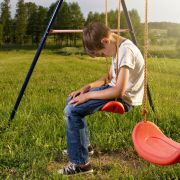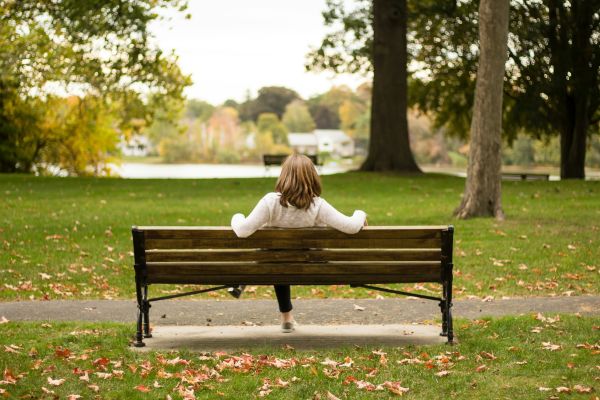Children and Depression
One of the sad facts of life is that mental health disorders such as depression are afflicting people at an ever-younger age. Children, even preschoolers, are not immune to depression. Evidence currently indicates that depression affects 1 to 3 percent of children before puberty. Early-onset depression is a treatable condition, and treatment is urgent for several reasons. If ignored, the early-onset depression can recur through life, and it is associated with such later problems as criminality, substance abuse, and suicidality. Depression in children warrants special attention because the disorder can interfere with the normal course of learning and development, impeding education, the establishment of relationships, and disrupting family life.
On This Page
- What does depression look like in children?
- Do children get depressed if a parent is depressed?
- Why do children get depressed?
- How is depression best treated in children?
- Are antidepressant drugs safe for children?
- Do children ever outgrow depression?
- What's the best way to help a child with depression?

One of the most common symptoms of depression in children is irritability. But children may also show symptoms more like those adults exhibit: sadness, lethargy, lack of interest in and withdrawal from activities once enjoyed, disturbed sleep patterns, feelings of worthlessness or guilt, and engaging in self-destructive behavior. That’s especially the case with teenagers. Other children may appear angry and act out frequently. Parents don’t often know when their child is depressed, and children do not always let on to parents that they are emotionally distressed; children may in fact withhold such information in an effort to protect their parents from feeling bad about having a child with a mental illness.
A family history of depression (especially in a parent) can put a child at risk for depression in several ways; there may be genetic transmission of vulnerability, but just as likely depression keeps parents from engaging with children in ways needed for neural development, a sense of security, and a sense of self. Further, depressed parents can unwittingly transmit their negative world view or negative styles of interpreting experience to their children.
Because children are dependent on their parent for most of their needs, a significant source of depression in children is persistent turbulence in the family home or severe familial adversity, such as poverty Abuse or neglect are notable adverse childhood experiences (ACEs) that can reset children’s stress response so that even minor upsets can trigger depression. The loss of a parent or beloved caregiver is another source of depression in children, just as is the loss of a significant relationship among adolescents. Bullying is a form of abuse that can give rise to depression in victims. Developmental and learning problems can severely affect children’s sense of self and pave the way for depression. The decline of free play in childhood is another contributor to depression, and it deprives children of an important source of joy. Among teenagers, there is mounting evidence that social media can have profoundly negative effects on mental health, especially among girls. Teens increasingly report they feel lonely; they spend more time communicating electronically, less time face-to-face interacting with friends.
Early detection and treatment of depression is important, because the longer depression goes untreated, the harder it is to treat. Medication is often prescribed for children with depression, but its effectiveness is very much a matter of debate, and many studies show that it is little more effective than a placebo. Moreover, the long-term effects of medication on the developing brain are unknown. On the other hand, psychotherapy of children, especially in conjunction with parents, is consistently shown to have a large and lasting effect on depressive symptoms in children. Evidence suggests that the most effective treatment for childhood depression involves some form of psychotherapy, with or without medication. The younger children are, the more important it is for them to be treated in conjunction with a parent—dyadic therapy. There is evidence that therapy specifically focused on parent-child interaction patterns can alleviate depression in children aged 3 to7—and in the parents as well. For older children, both cognitive behavioral therapy (CBT), which aims to correct the negative thinking patterns that underlie depression, and interpersonal therapy (IPT), which looks at children in the context of their relationships, have lasting therapeutic value.
Few mental health topics have inspired as much controversy as the use of antidepressant drugs in children and, arguably to a lesser extent, in teens. Antidepressant medications carry a so-called black-box warning that the drugs may increase the risk of suicidal thinking and behavior in those under age 25. What’s more, no antidepressants are approved for use in children under 8. Nevertheless, there are times when the benefits of antidepressants outweigh the risks. Antidepressants work best when their use is regularly monitored by a psychiatrist and the treated child is carefully observed by parents.
Ignoring depression or expecting it to go away on its own is never a wise policy, particularly in children. If untreated, an episode of depression lasts an average of four to eight months. That can have major effects on a child’s learning and on relationships in the family and with peers. Further, untreated or incompletely treated depression sets children up for repeated bouts of depression later in life. Among teens, whose depression may be related more to their expanding social sensitivities than among younger children, 50 percent of those who experience one episode of depression will never experience another.
Aim for fast and effective action. Both the quality of parent-child communication and the tone of the family environment are important. If there are tensions in the household, seek to address and reduce them, even if it means marital therapy for the parents, Support is crucial. Let a child know you are aware of their struggles, that they are not alone, and demonstrate willingness to listen when they want to talk. Parents can help children understand their feelings by putting names to them and distinguishing one from the other, such as sadness and loneliness; knowing what someone is feeling is a requirement for knowing what remedial steps are necessary. Parents can also help spot and bring awareness of a child to the negative self-talk that can trigger a downward emotional spiral. Going for walks or bike rides with a child has special value: It not only counters lethargy and presents opportunities for nurturing the parent-child bond, but outdoor activity is itself beneficial and involves exposure to sunlight, a natural antidepressant.














